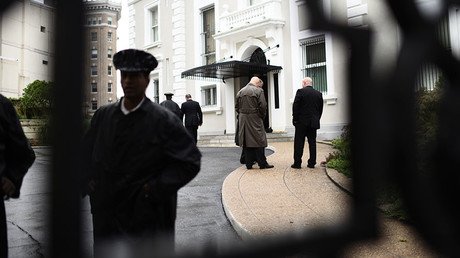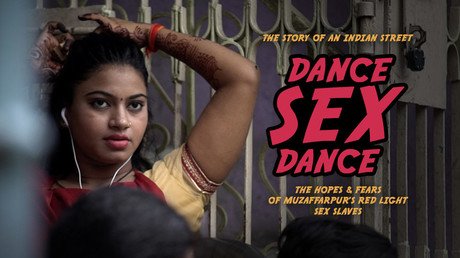‘He respected us’: Ex-consul debunks MSM claims Assange had issues with Ecuador’s embassy staff
Claims that Ecuadorian embassy staff had trouble living side-by-side with Julian Assange were a mere “smear campaign,” the country’s former consul told RT. Both the hosts and the guest showed true respect to each other, he said.
In comments to RT, Fidel Narvaez spoke out against media coverage of Julian Assange who remains in custody after his arrest in London. “I was very disappointed that the fundamental thing – which is the persecution of a journalist for ... the crime of publishing truthful information about war crimes, corruption, mass surveillance – is not in the focus of international [media coverage],” he noted.
Instead, most news outlets prefer to talk about the “day-to-day behavior of Assange in the Embassy and his relationship with Ecuador [authorities],” echoing accusations made by President Lenin Moreno – the one who withdrawn his asylum status citing “discourteous and aggressive behavior.”
Moreno’s list of Assange’s transgressions included blocking the Embassy’s CCTV cameras, accessing security files without permission, and harassing its personnel, including guards. Mainstream media have widely quoted those claims, including the most notorious one in which Moreno went as far as to allege the WikiLeaks founder was “smearing his feces on our embassy’s walls.”
Also on rt.com ‘Greatest traitor in Ecuadorian history’: Ex-President Correa slams Moreno over Assange’s arrestBut Narvaez, who was Ecuador’s consul during Assange’s presence, said that stories about “his alleged breach of asylum conditions” and altercations with diplomatic staff were a “smokescreen” created by Moreno’s government. “A couple of isolated incidents with security guards” can’t be described as improper conduct, he opined.
I was in the Embassy for six years, and Assange spent there nearly 2,500 days. I witnessed myself how respectful was [the attitude] of all diplomats, of all administrative staff towards him and [vice versa], of him towards us.
But that attitude changed when Moreno took office in 2017. Last year, the Ecuadorean government severed internet access for Assange, citing a breach of a rule on non-intervention into the politics of other countries. The embassy also limited Assange’s visitors, making the only exception for his lawyers.
READ MORE: ‘Spying & threats’: Assange complains of ‘more subtle’ silencing than Khashoggi
That, in itself, was “a very, very gross violation of human rights of someone who was not serving a sentence, of somebody who was not a prisoner,” the former consul commented. At this point, Ecuador became “a persecutor” instead of being “a protector.”
“You have to attack and defame the personality if you don’t want the public opinion to support the brave one who challenged the most powerful nation on the planet,” Narvaez concluded.
Like this story? Share it with a friend!













